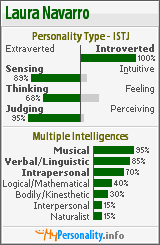It has been a great Christmas, with time spent with so much of the family. I’ve been thinking about what it means to know these people. Family and friends. The pastor made a remark during the sermon yesterday about how hard “doing church” can be, because we know each other, we know all about each other. We all recognize what he’s saying, but I wanted to argue that if we truly knew ALL about each other church wouldn’t be that hard. I think it’s precisely because we don’t know all there is to know that we struggle so.
First, I know we don’t know all there is to know about ourselves. Each of us has some very serious denial and distortion going on, that keeps us from facing all the bare truth about our self. Sometimes it is the deep dark places that we hide, and sometimes we only see the dark and it is the good that we hide. But we are seldom completely honest about our own motives and desires.
Second, we don’t see everything about another person. That makes it much easier to take things personally and be offended by the words and actions (or lack of words or actions) on their part. Why didn’t they invite me? It must be that they don’t want me, it certainly can’t be that they simply missed my name and had too much on their plate as they go through this busy life. Why didn’t she stop to talk to me? She must not like me, it can’t be that she is intimidated by me or can’t think of something to say, or that someone else is hurting more and needed her attention today.
I had a conversation with my sister-in-law about her youngest son. He is a sensitive soul, with very strong emotions. But those of us with strong emotions learn that in times of danger (when our feelings might be misunderstood or abused) we should hide all emotions from everyone. He has a type A kindergarten teacher who is an in-your-face sort of person. When this small 5 year old learning how to made decisions makes the wrong one she calls him on it immediately and impersonally, and then wonders why he shows no remorse. Of course, she can’t see the agony going on inside or the tears shed at home. She thinks she knows all about him and has labeled his behavior. But, again I argue that if she truly knew all about him, she would love him too much to label him or to assume the worst about his motives.
We think we know people because we can predict their behavior and recognize their reactions. But we often don’t truly understand the reasons and motives behind all of that. It is easy to depersonalize it and attribute our own theories of motives to those behaviors – that is what makes church hard. We assume they aren’t really loving or aren’t growing or are insensitive to what others need.
Loving someone doesn’t always mean we understand them completely either, but it certainly changes the type of motives we attribute to them. We find good reasons they would do what they do, even when they make mistakes. I think those motives are more often closer to the truth.
I find sometimes that I want to tell someone that their actions are wrong or hurtful, but unless I am doing it out of a deep love for them, I can’t find good words to talk to them. I don’t like it when people try to give me constructive criticism that isn’t coming from a heart of love. I think that’s why a single word from my husband hold so much power over me. I know he is really searching for the best for me and from me – for my good. It’s why a kindergarten teacher can’t get the best behavior out of a precious little boy.



